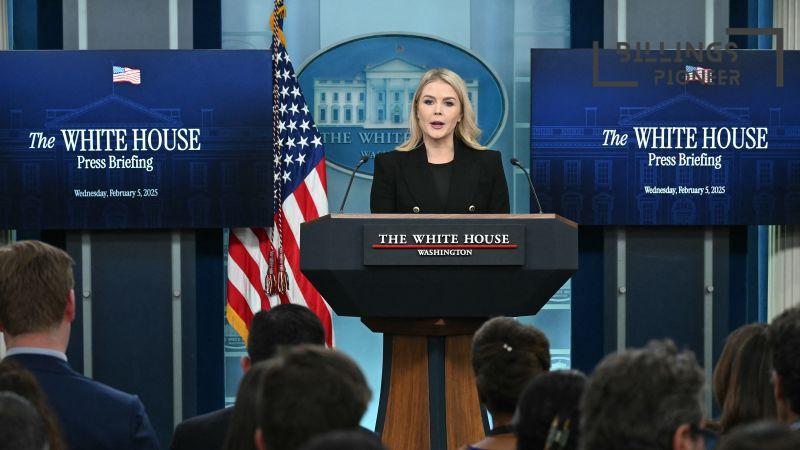In a surprising move, the White House recently announced it will cut off more than $8 million in subscriptions to the news outlet Politico. This decision stems from a false claim that the funding was coming from USAID, a government agency focused on international aid and development. White House press secretary Karoline Leavitt stated that the action was taken after misleading narratives spread online, particularly by some conservative commentators.
What Sparked the Cancellation?
The cancellation of these subscriptions, originating from several federal agencies, was prompted by a social media frenzy, particularly on platforms like X (formerly known as Twitter). Conservative influencer Kyle Becker ignited this narrative by suggesting that Politico was receiving substantial funds from USAID, linking it to a payment issue at the outlet. Many far-right media figures joined in, amplifying the false narrative, leading to outcries against perceived waste of taxpayer money. Notably, Elon Musk also chimed in, expressing his viewpoint on the allegations.
Understanding the Funding
- The $8.2 million funding for Politico subscriptions came from various federal agencies, not solely from USAID.
- Subscription funding for news outlets is not uncommon, as many government entities support media access for their employees.
- Despite the false claims, the Associated Press clarified that many government agencies engage in similar media subscriptions as part of their operations.
The Response from Politico
Interestingly, Politico has not responded to requests for comments regarding the cancellation of the subscriptions, leaving many to wonder about their stance on the situation. Meanwhile, Kyle Becker’s claims have faced significant scrutiny and backlash, with journalist Isaac Saul labeling the narrative as “DOGE nonsense,” a nod to the cryptocurrency that has garnered both support and skepticism.
Past Attempts to Cut Subscriptions
This is not the first time government subscriptions to major news outlets have come under fire. Back in 2019, during the Trump administration, there were push efforts to cancel subscriptions to prominent media outlets like The Washington Post and The New York Times. This historical context puts the recent decision into perspective as part of a continuing trend among government administrations.
Political Commentary on Media’s Role
In a separate discussion, Politico co-founder Jim VandeHei remarked that liberal media is currently at a low point, pointing to declining viewership and layoffs at major networks such as CNN and NBC News. He argued that despite these issues, opportunities for growth in liberal media remain, particularly for channels like MSNBC that can draw on strong leadership and popular hosts.
Looking Forward
The White House’s recent decision also sparks conversations on how taxpayer dollars are spent to subsidize media outlets. Many individuals are questioning if these expenditures serve the best interest of the public and if there is a need for a broader review of government spending. As politics and media continue to intertwine, this incident raises important questions about misinformation, funding allocations, and accountability.
| Issue | Response |
|---|---|
| False Claims | Cancellation of subscriptions to Politico |
| Funding Source | Multiple federal agencies, not just USAID |
| History | Previous attempts to cut media subscriptions by government |











